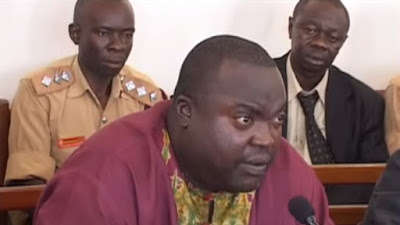OCTOBER 9 - Prime Minister Apollo Milton Obote’s 1962 Uganda Independence Speech
*****
At the turning-point in the history of Uganda, I hope that all our friends will join with me in bestowing upon the new, independent Uganda our prayers and hopes for peace, prosperity and a growing strength in her now role in international affairs. Uganda has many friends, both within her borders and outside. With the goodwill of all who wish to see her prosper, Uganda will go forward from strength to strength.
Let us pause for a moment and look back along the path we have traveled. In the days before this part of the African continent was known to the western world, we became known as a group of peoples who welcomed the traveler, the missionary and the explorer. As the years passed, we reaped the benefit of this friendly nature of ours.
The technical progress of the last half-century has transformed our country in countless ways. But, fortunately, we have continued to keep our own customs and culture. It is up to us now, more than ever, in shaping our new country, to achieve a consolidation, in which neither the rapid progress of recent years, nor the age-old customs of our forefathers, are lost or diminished, but rather fused into a new national characteristic in which the best is preserved, while the worst may be thrown away.
National unity
What other aims have we, today, on looking forward? One of our first needs must be national unity. The narrow ambitions of a tribe, a sect, or a party must be subordinated to the greater needs of one complete Uganda. In our Government of these past months, we have striven to put the interests of Uganda before all else, and we shall continue to do so.
But on attaining independence, this Government has new responsibilities to bear, heavier than those which any previous government in Uganda has borne, and we are conscious of the care and statesmanship with which we must move in taking our first steps in foreign affairs. In the Commonwealth and in the United Nations we shall be among friendly states, both from other parts of Africa and from elsewhere. But the regard in which a nation is held in the eyes of the world depends upon the successful operation of a complex machinery.
We have paid attention to the design of that machinery. First, we require political stability. My Government will seek to maintain that stability, by the strict maintenance of law and order, by retaining the confidence of the voters, and by upholding the freedom of the individual. Secondly, we require to safeguard the economy. This we will do by diversifying and improving our agriculture, providing incentives to industry, and creating conditions which encourage foreign investment.
Thirdly, we will press forward with social services within realistic bounds and not as dictated by idealism. Fourthly, we need an efficient civil service to operate the Government. Uganda is well provided with well-qualified African officers and we shall continue to ensure that these are attracted into government service by the offer of the right terms, so that a balanced Africanisation programme shall continue.
I conclude by emphasising that there is a place in the Uganda of today for all who have her interests at heart, whatever their tribe, race or creed. Let all of us, who wish to see Uganda prosper, join together today in resolving to build a great and united nation.











